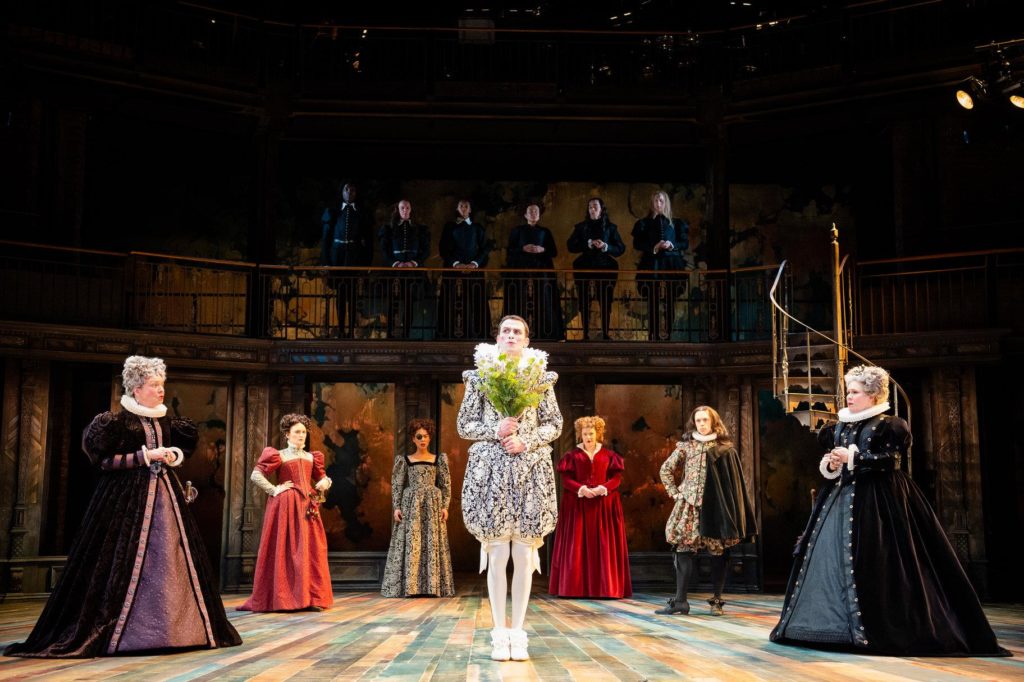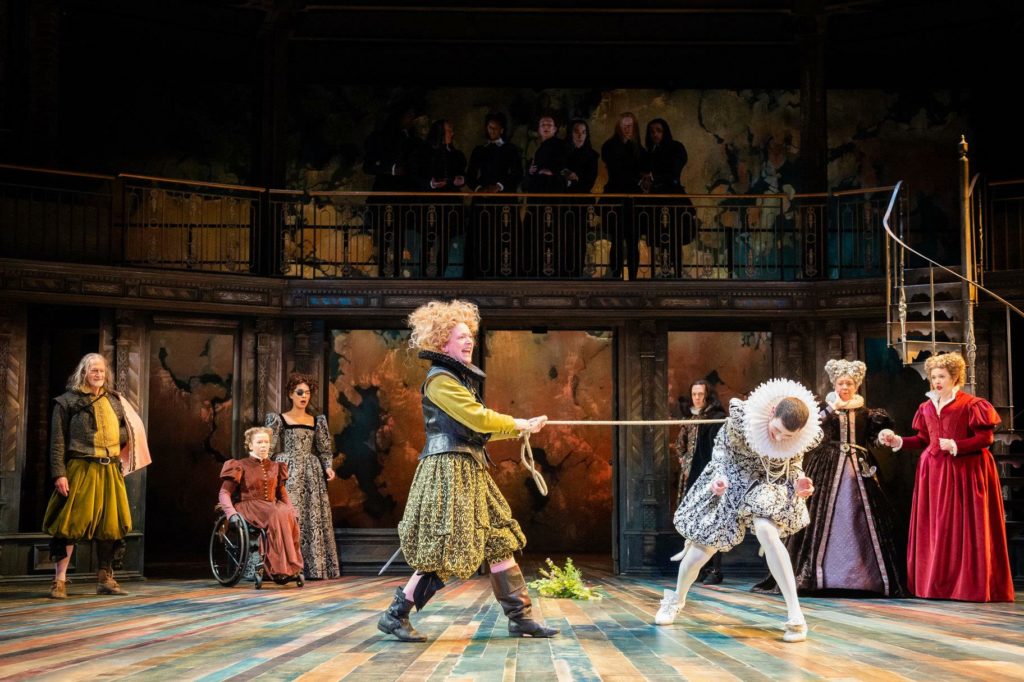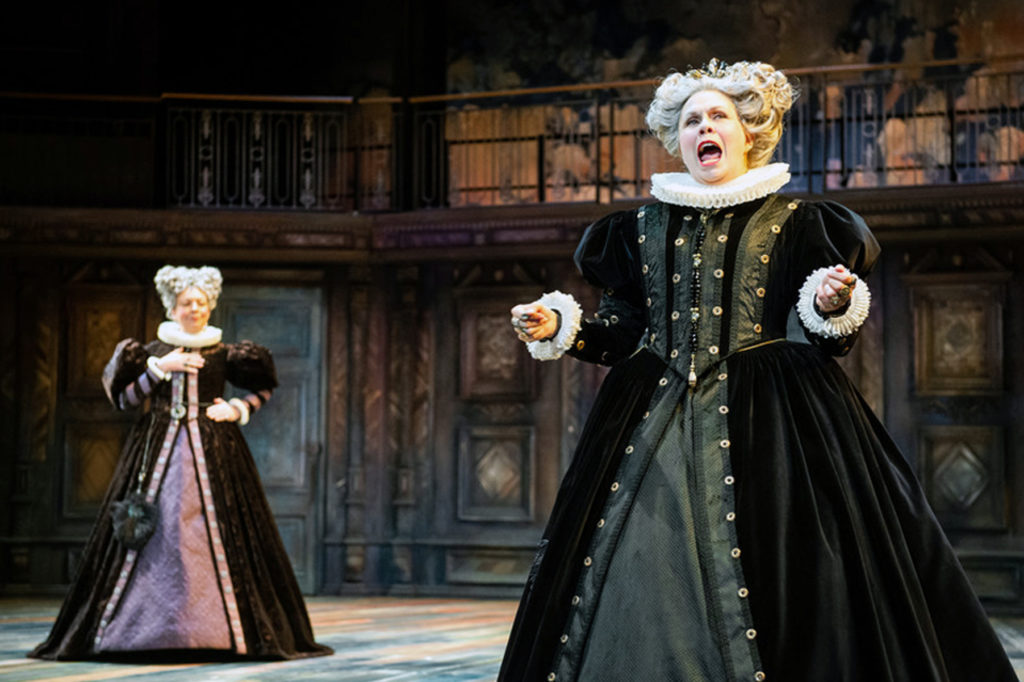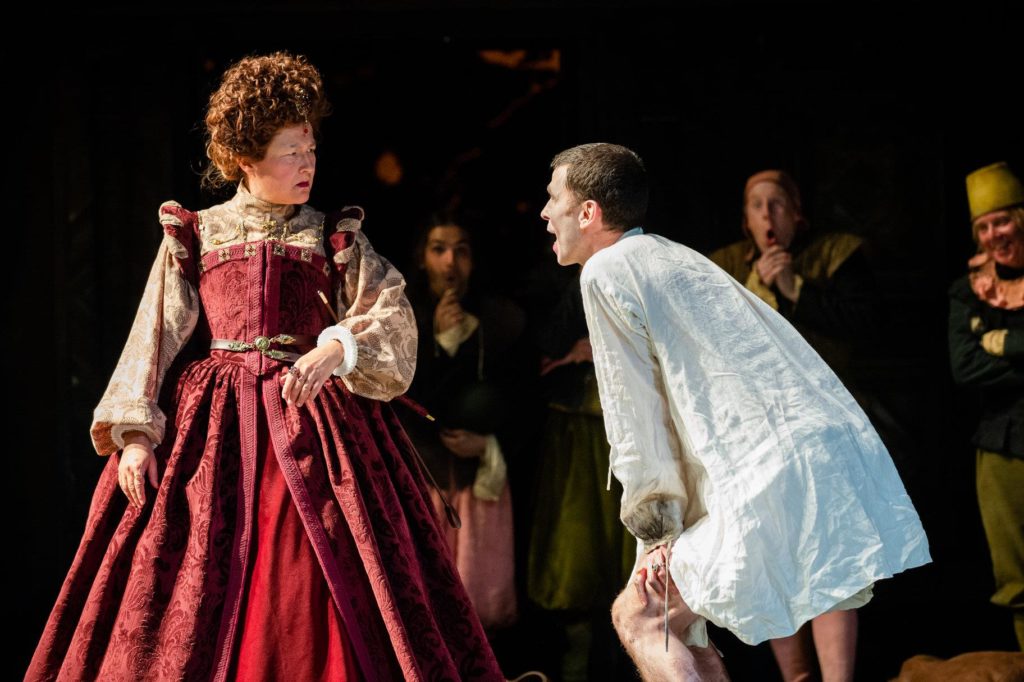Part of my effort to see every Shakespeare play.
The Taming of the Shrew is often rightly criticised as being a rampant pile of misogyny. The central plot, in which the strong-willed and fiercely independent Katherina is married off to the controlling and abusive Petruchio so that her younger sister Bianca may marry her lover Lucentio, was horrifying to me when I had to study it in school, and it is horrifying now. The Royal Shakespeare Company tries to adapt this for modern day sensibilities by gender swapping the entire cast and setting the play in a matriarchy, but it doesn’t work.
That’s not to say that they don’t give it a very good go. I saw this as another live broadcast in the cinema, and they put on a behind the scenes featurette while everyone in the theatre is having the interval, which in this performance focussed on the costume and make-up designer discussing her they used make-up and design to project what a society in which women are powerful would look like. So the women wear dresses and the men wear breeches, but the dresses are strong dark colours that are practical but take up a lot of space, some wear swords, and the men wear thin layers covered in flowery print. The men are presented as smaller, and weaker than their female counterparts, which is visually quite striking.

But, at the end of the day, as The Guardian put it, this is a play about power. You can remove the patriarchy that reigns in this world, and you are still left with a partner with total power, who subjects the main character to capriciousness, gas-lighting, starvation, and in several scenes, physical abuse. With the intended goal of this being funny. And it just isn’t. The result was simply very uncomfortable viewing.
When I first read The Taming of the Shrew at 11, I objected to my teacher about the way that Petruchio treats Bianca. She told me that this would have been funny to an Elizabethan audience, and that we see things differently now. Watching it on stage, and having seen so many productions at the Globe, made me recall this conversation and question: did women not go to these plays? Would there not have been a substantial part of the crowd that, even with more Christian ideas of female servitude than we have time for today, not have found a woman being brutalised on stage somewhat repugnant? Perhaps it would have been funnier if the character was in fact a young boy (women were banned from acting until 1660), but I doubt it.

This is not to say that it isn’t a great production. The matriarchs of the family wear this massive Henry VIII-esque costumes that entirely covered their feet and they’d perfected some particularly kind of walking so that when they moved across stage it looked like they were gliding. Bianco, the younger sister, is continuously silly and hare-brained and it was genuinely an interesting experiment with gender roles to have a man preening with his long hair and pretending not to know how to use a guitar in order to seduce his tutor. Her tutor, Lucentio, is played with a facile enthusiasm in what I described to a friend as “Jen from IT Crowd meets Cameron from Ten Things I Hate About You” The ongoing RSC effort to cast inclusively saw one of the secondary characters using a wheelchair, and another character is deaf.

But you just can’t get away from what this play is, ultimately. Great actors make you believe in what they’re doing, and the RSC has great actors. Petruchia is portrayed at this madcap inventor type who only wants the best for her husband, and at the end of the play the two hook up in what appears to be genuine affection for each other, which I supposed was intended to be a attempt to soften the impact but as far as I am concerned, made it even worse. I’ve said several times in these reviews that seeing a Shakespeare play performed really brings to life what was always intended to be a live performance rather than words on a page, but watching Katherina beg for food while the servants laughed at her inversely made it that much harder to consume. I do not think that Shakespeare had anything to be proud of in this play.
